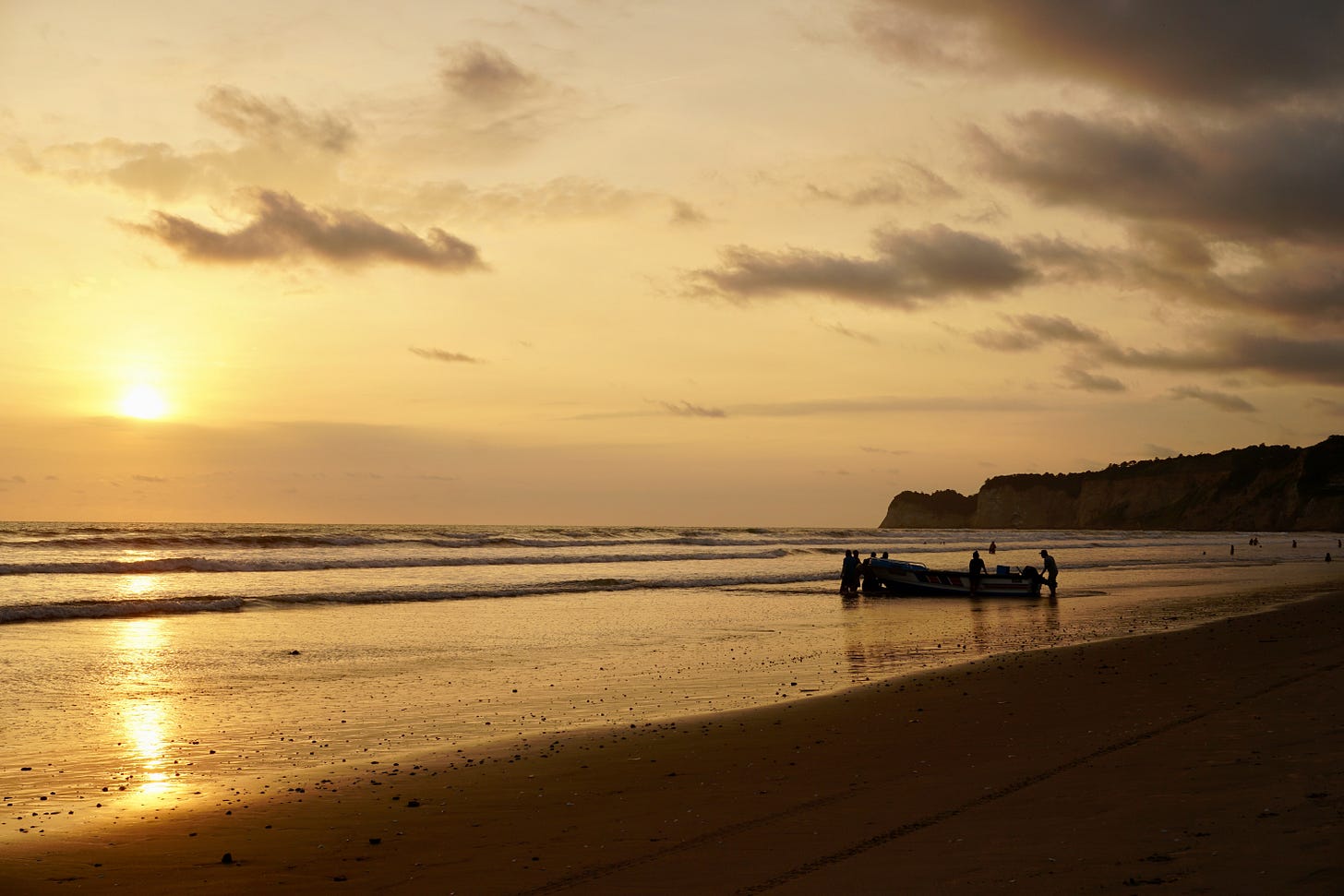Some of the places I’ve visited this year cater mostly to Western tourists. The “locals “ have also migrated, but from other parts of the country to make money. They’re the sort of naturally helpful and curious folks the hospitality industry attracts. But the cheaper the cost of living the more unbearable the tourist.
I should try to be more understanding. These places probably just attract visitors trying to stretch a limited budget for as many months of escape as possible. But when you watch your sunbathing countrymen haggle an old lady dragging a cooler of waters down a beach to save $0.05, a part of you dies.
The coast of Ecuador is a breath of fresh air. Canoa is an eight-hour bus ride from any airport. The weekend tourists drive here from inland Ecuador. The gringo colony is so enamored, many live here full-time.
My generation loves to post pics of our long weekends overseas. Half of us still won’t shut up about discovering ourselves during that semester abroad. We speak Spanglish casually, drink Dos Equis, and fancy ourselves worldly. The gringos here who are 50+ are a healthy dose of humility.
These couples are fluent in the local language, and the idioms, the subtext, bribery, and bargaining. They never panic. They just shrug and sit down to wait for the next bus. And they have a rhythm. You watch a stooped expat couple move through an airport and you’ll notice they each have jobs as well worn as their dedicated pockets for passport, boarding pass, water bottle, handkerchief, etc. There’s no shortcut to the relaxed efficiency born from decades of solving every problem that comes your way, together.
While gap year backpackers’ motto is “I can’t even,” these old gringos’ motto seems to be, “It’ll all even out.”
And the expat guys here invited me to the weekly poker game. I’m sure it’s because they like me and that my money’s safe.
The entire coast of Ecuador is beautiful. But at Canoa, the mountains come out to meet the sea. Sandy cliffs 100+ feet tall on either end of the beach are constantly tumbling into the Pacific. The way the fog burns off them in the morning has me blinking back visions of San Francisco while I sip my coffee.
On weekends, Ecuador’s longest beach becomes a carnival for locals on day trips. One archipelago of bars blasts salsa and bachata music and couples of all ages congregate on the dance floor. Another beachfront bar draws the soccer crowd, the kids are all grouped at one table littered with french fries they use to reenact the latest play.
But on weekdays Canoa is a tiny fishing village. The men gather at dawn and take turns pitching in to roll each long fiberglass boat down the beach and into the tall waves. Most boats have a pilot and one crewman. Both are already wrapped in bandanas and hats to fend off the equatorial sun.
The boats return singly, planing towards the beach, directly away from the red sun just touching the ocean. The waves are tall here and so the pilot pauses, waits for the perfect opening, and skips past the surfers.
They beach hard. The mate jumps out to hold the bridle line of their bucking boat. The two men wait for their entire family to run down from the village and help them haul the boat ashore. They set it on a dolly made from an old truck axle. Then they shout and gesture to any of us still on the beach. We all put a shoulder to the hull and slowly, step-by-step, push the teetering load up the long sandy slope.
After they’ve set the hand-painted boat up on timbers, they parade through the village. If I am still writing they pass my porch, the children proudly carrying the day’s catch. Watch long enough and you’ll see Dad plodding heavily behind, his precious outboard motor slung across his back.







Amazing work!